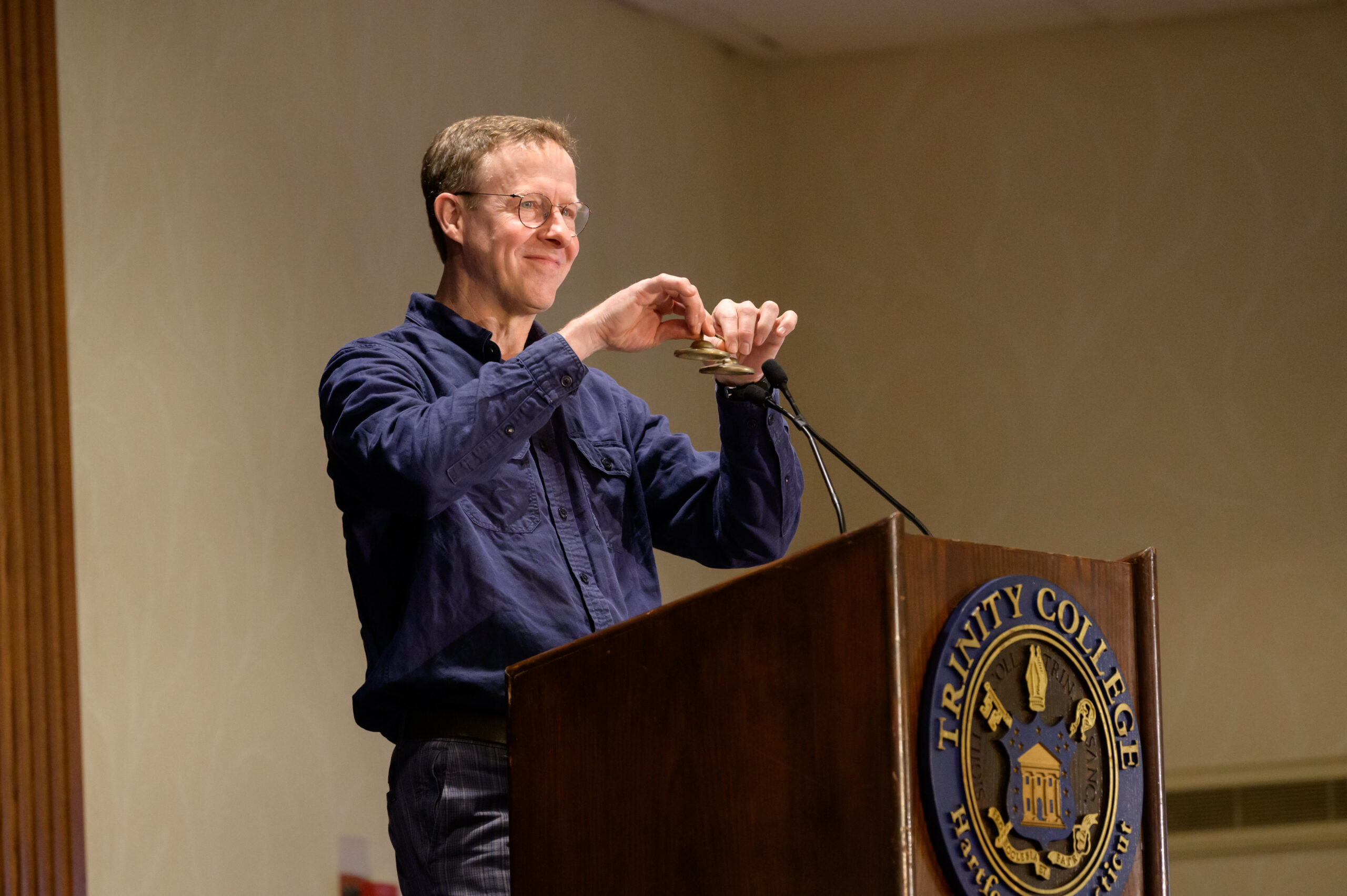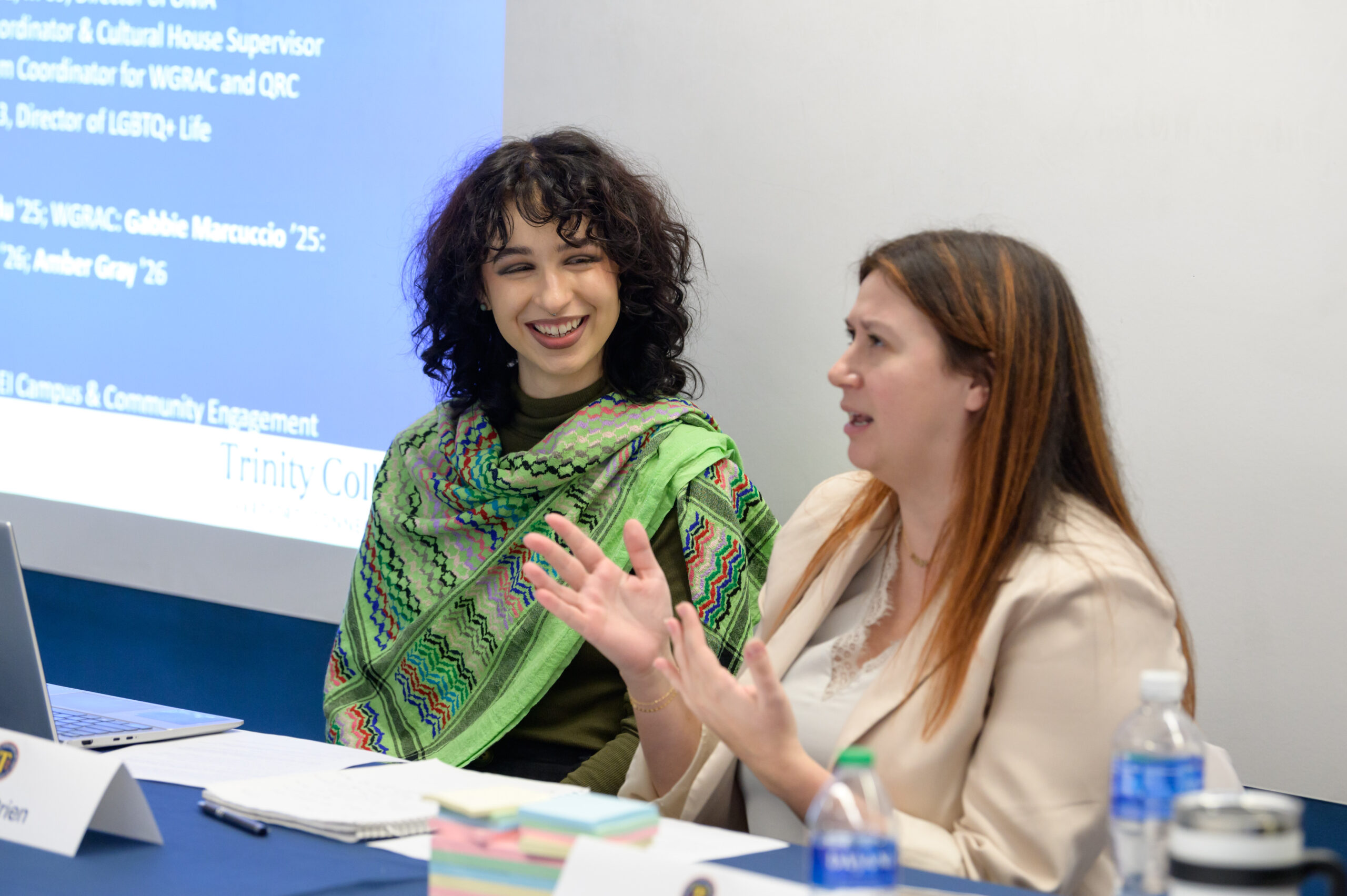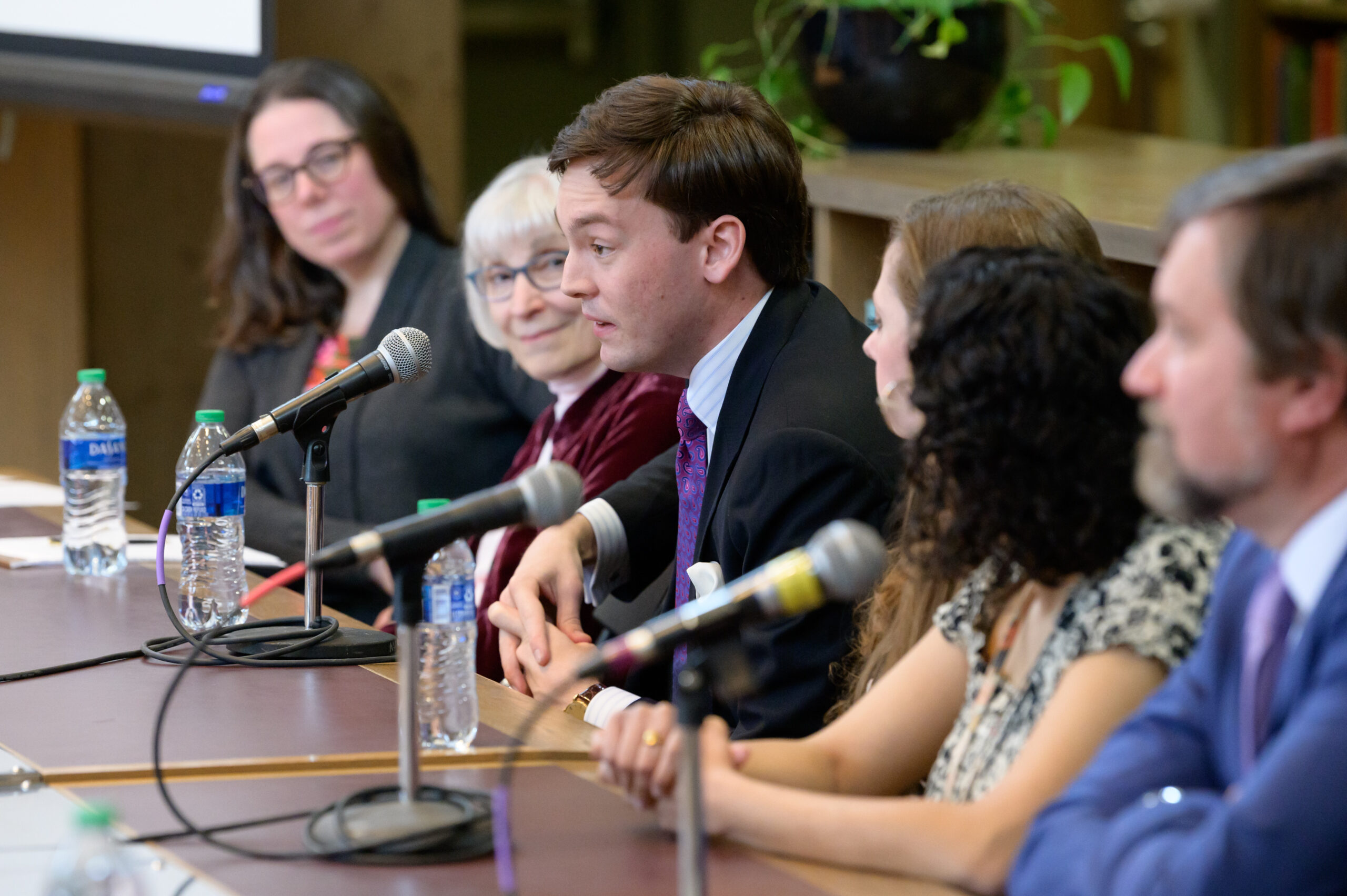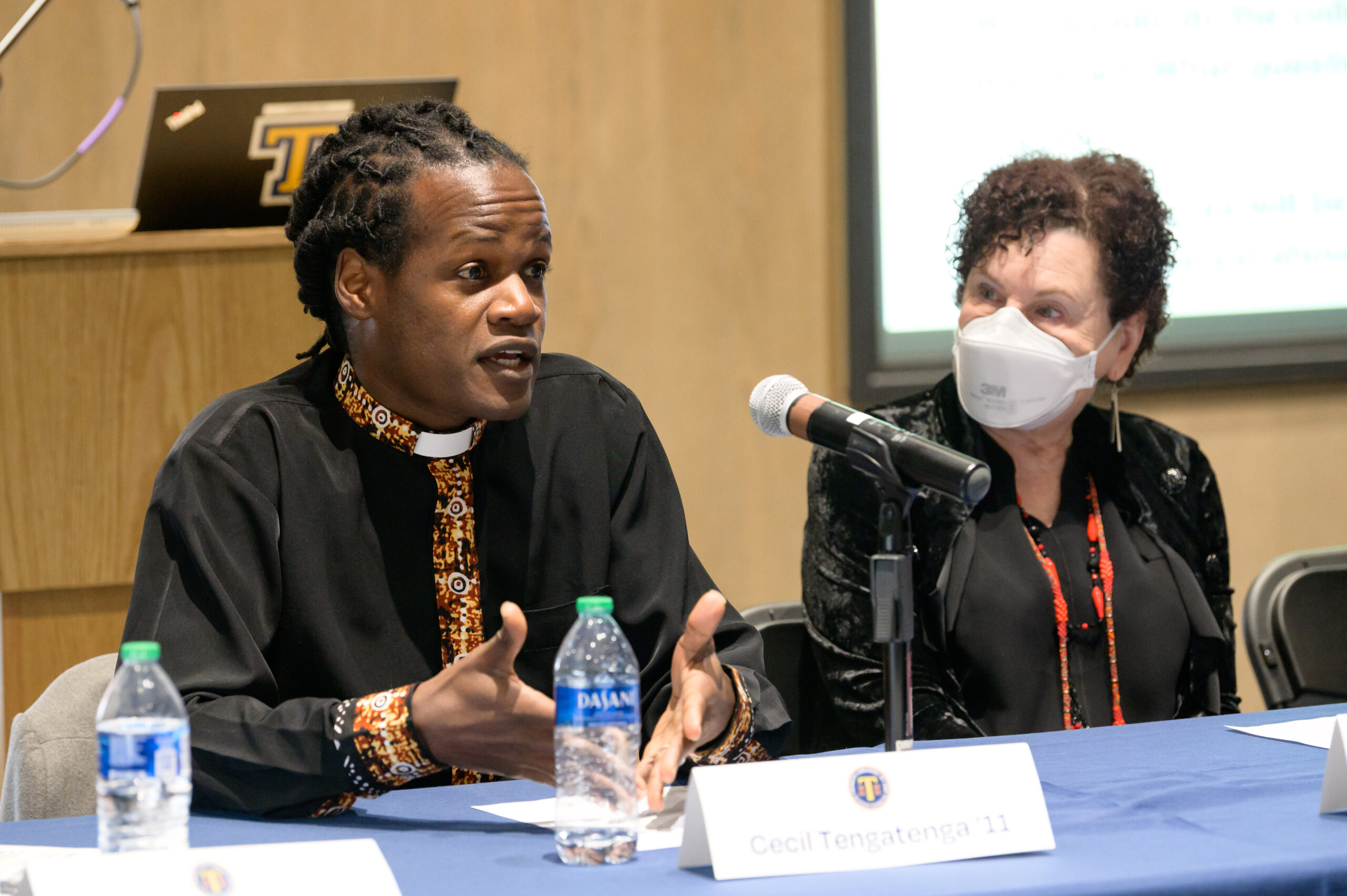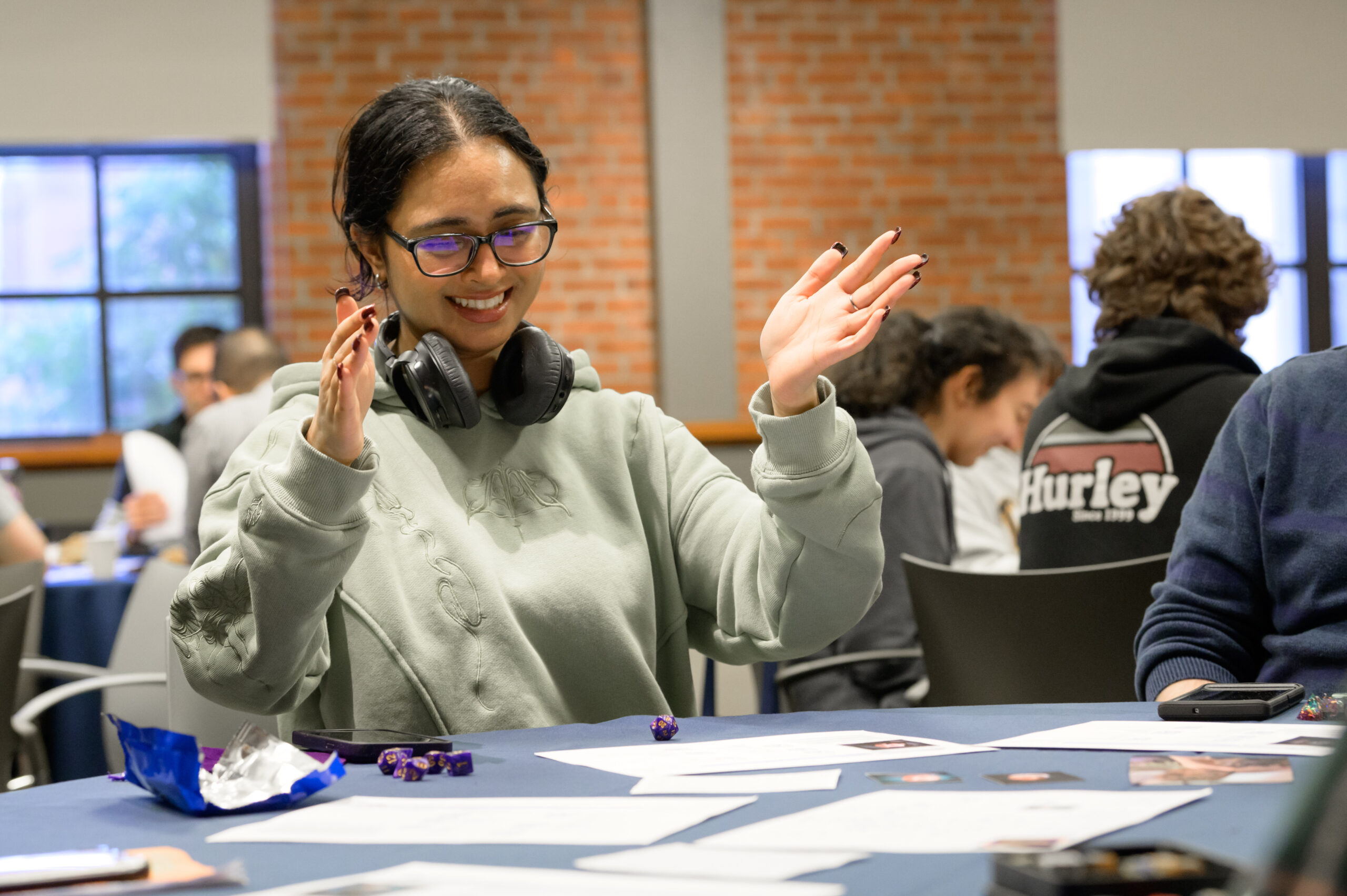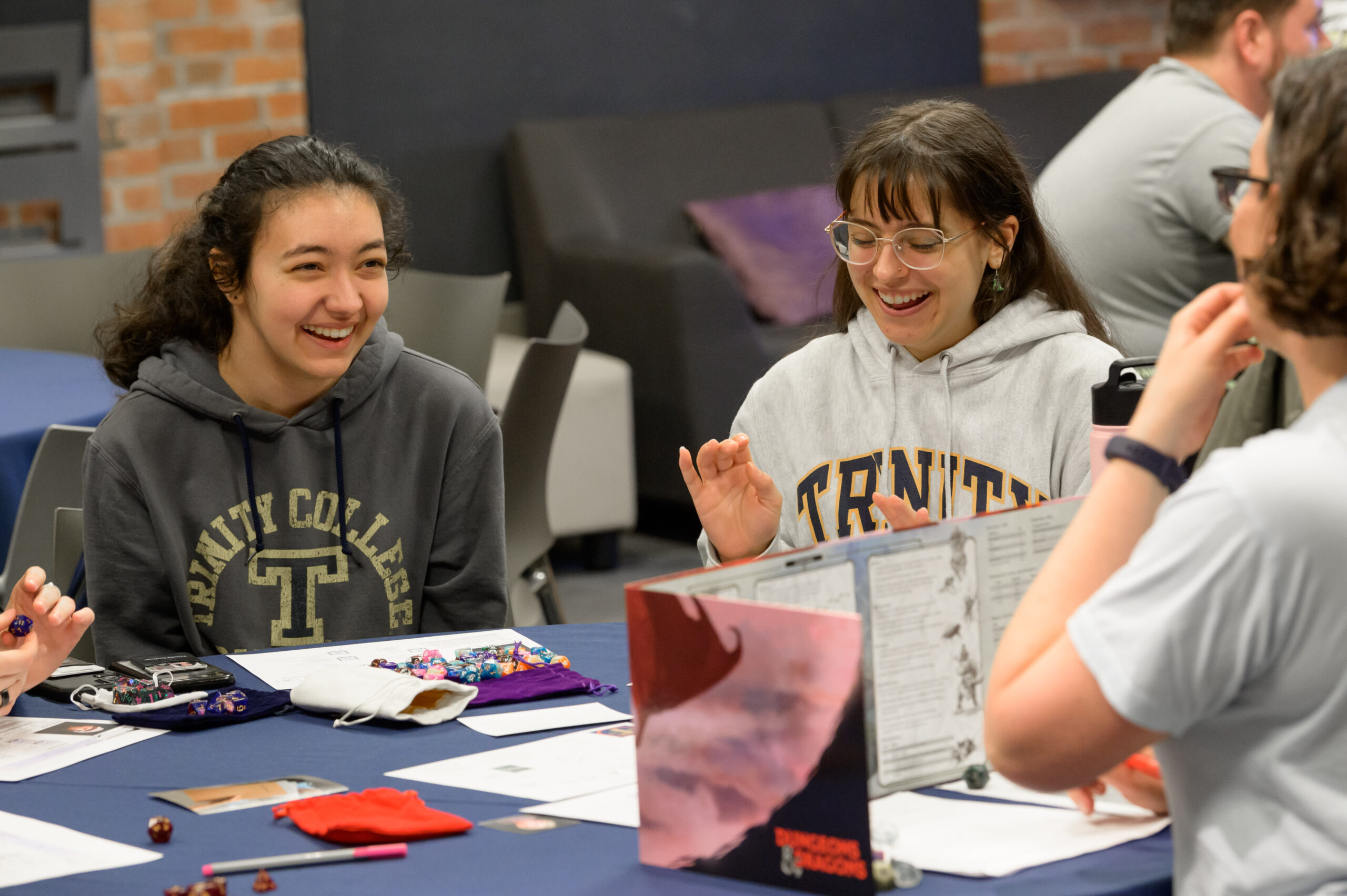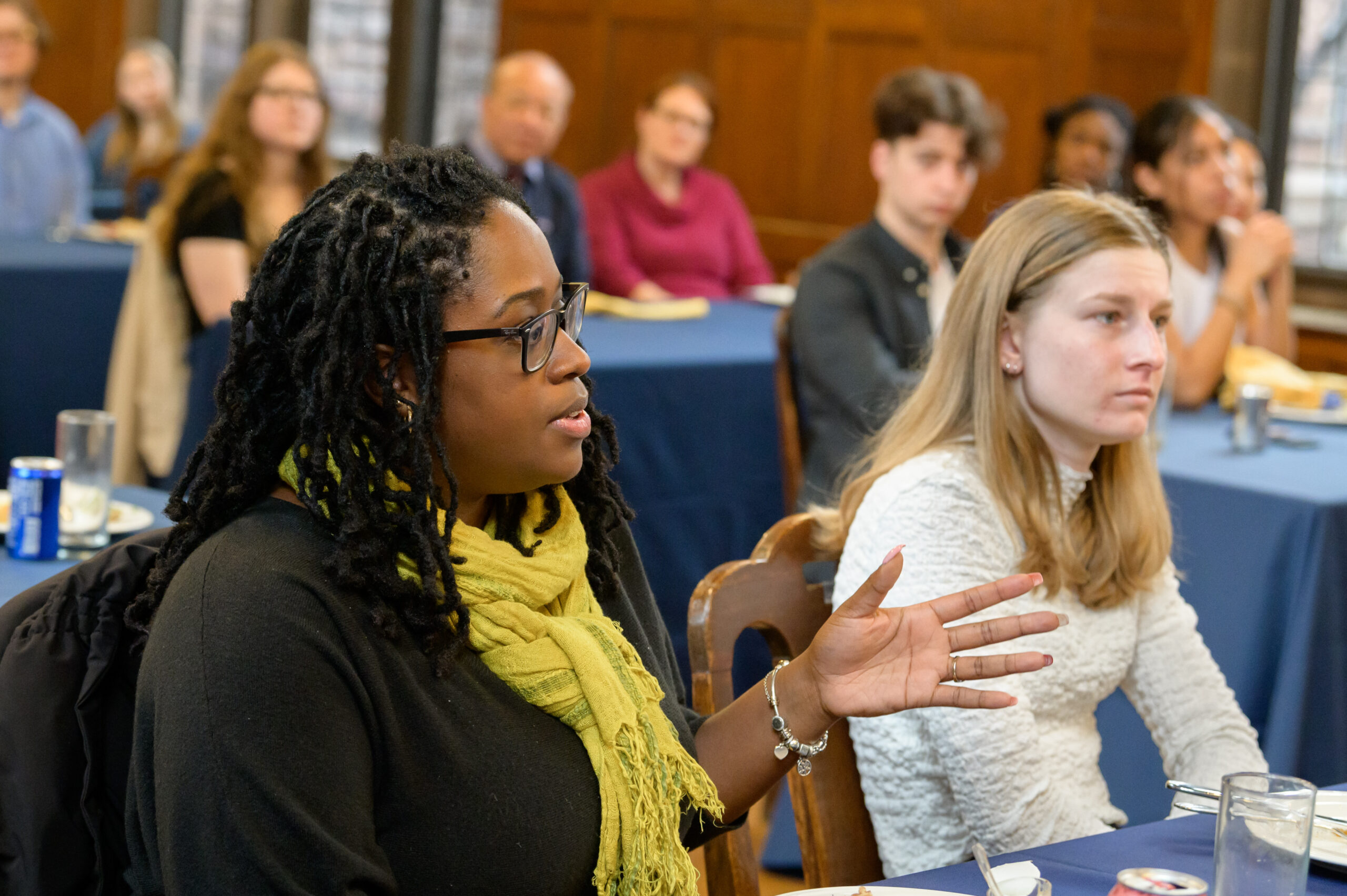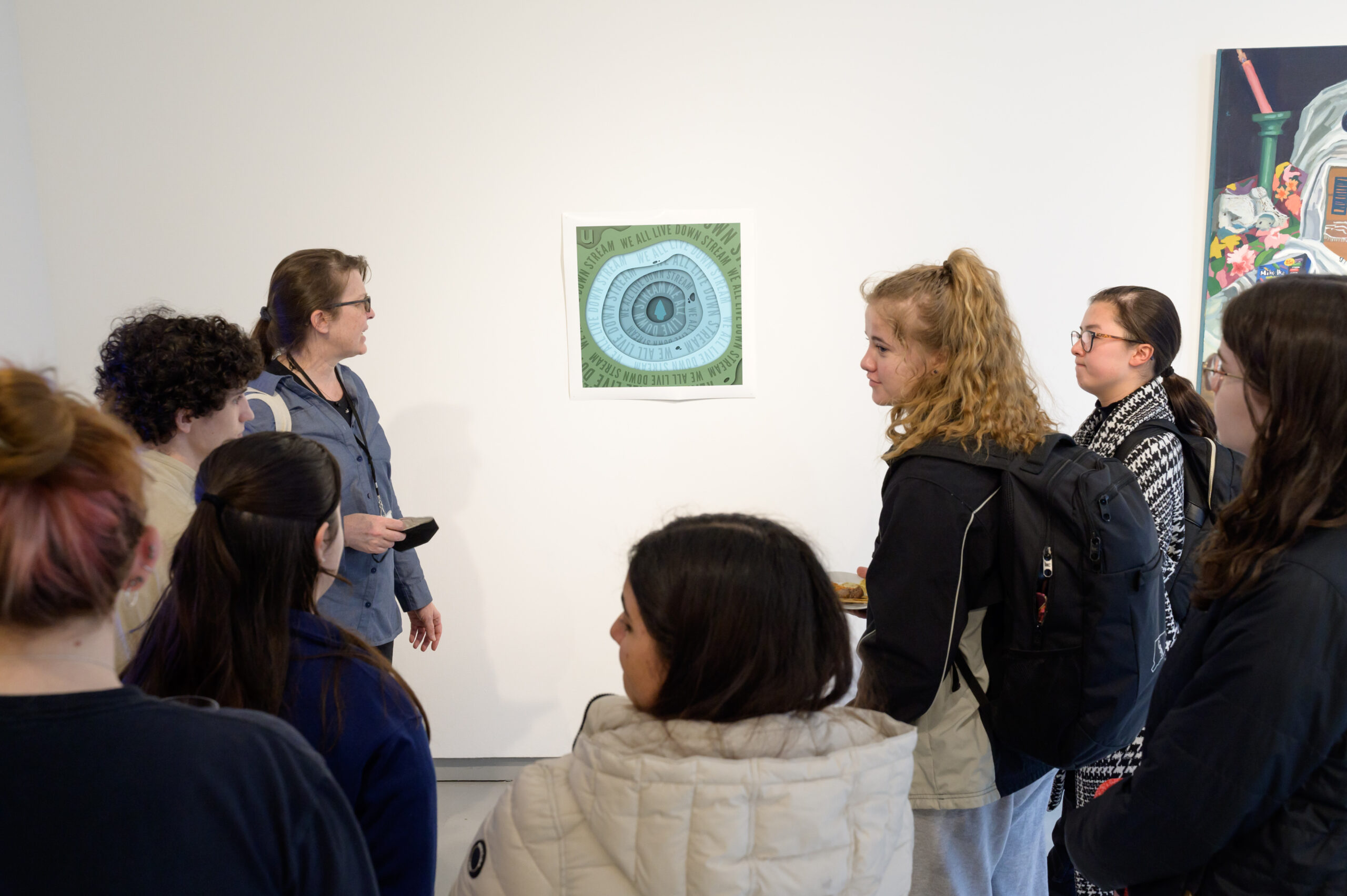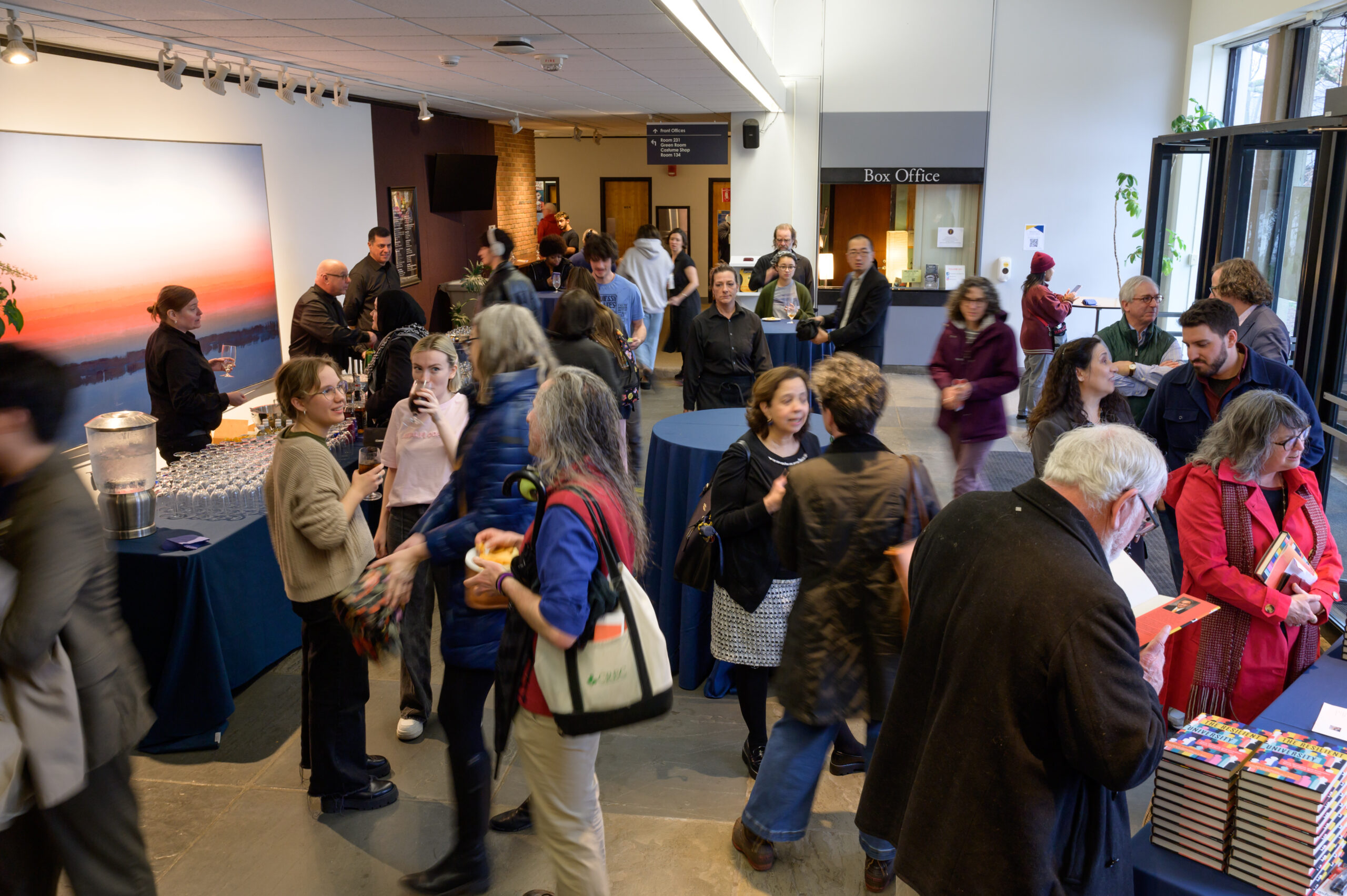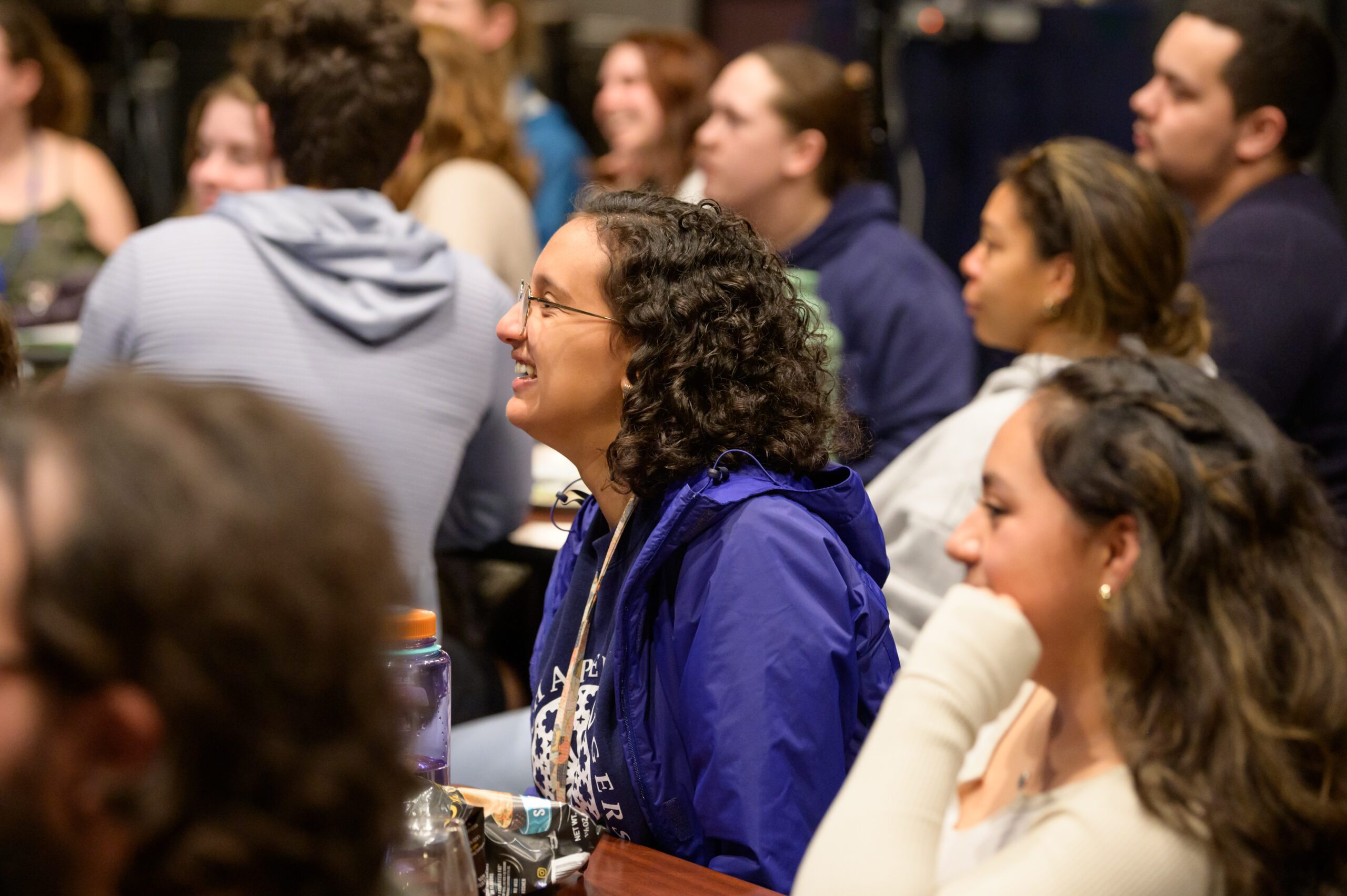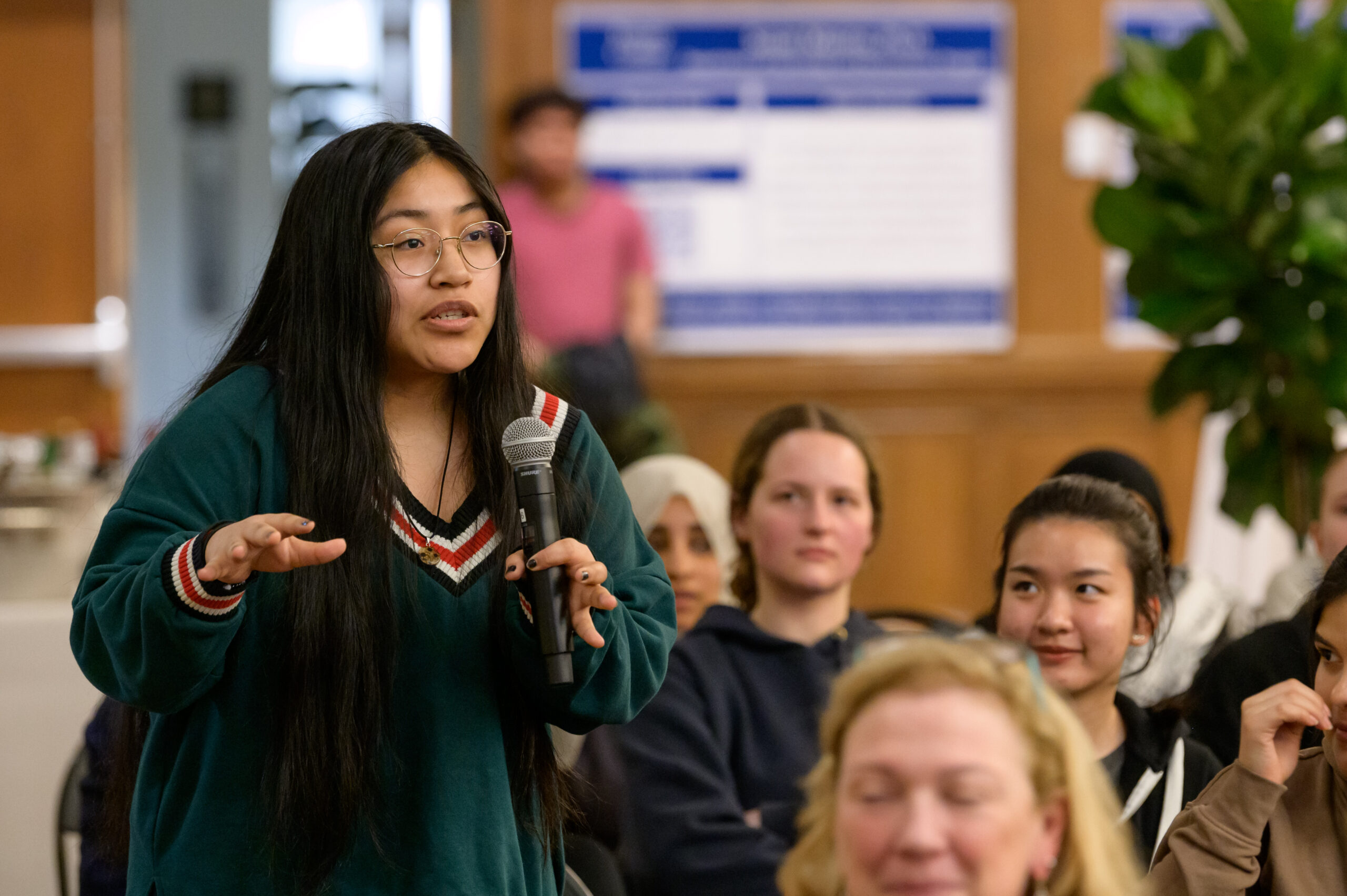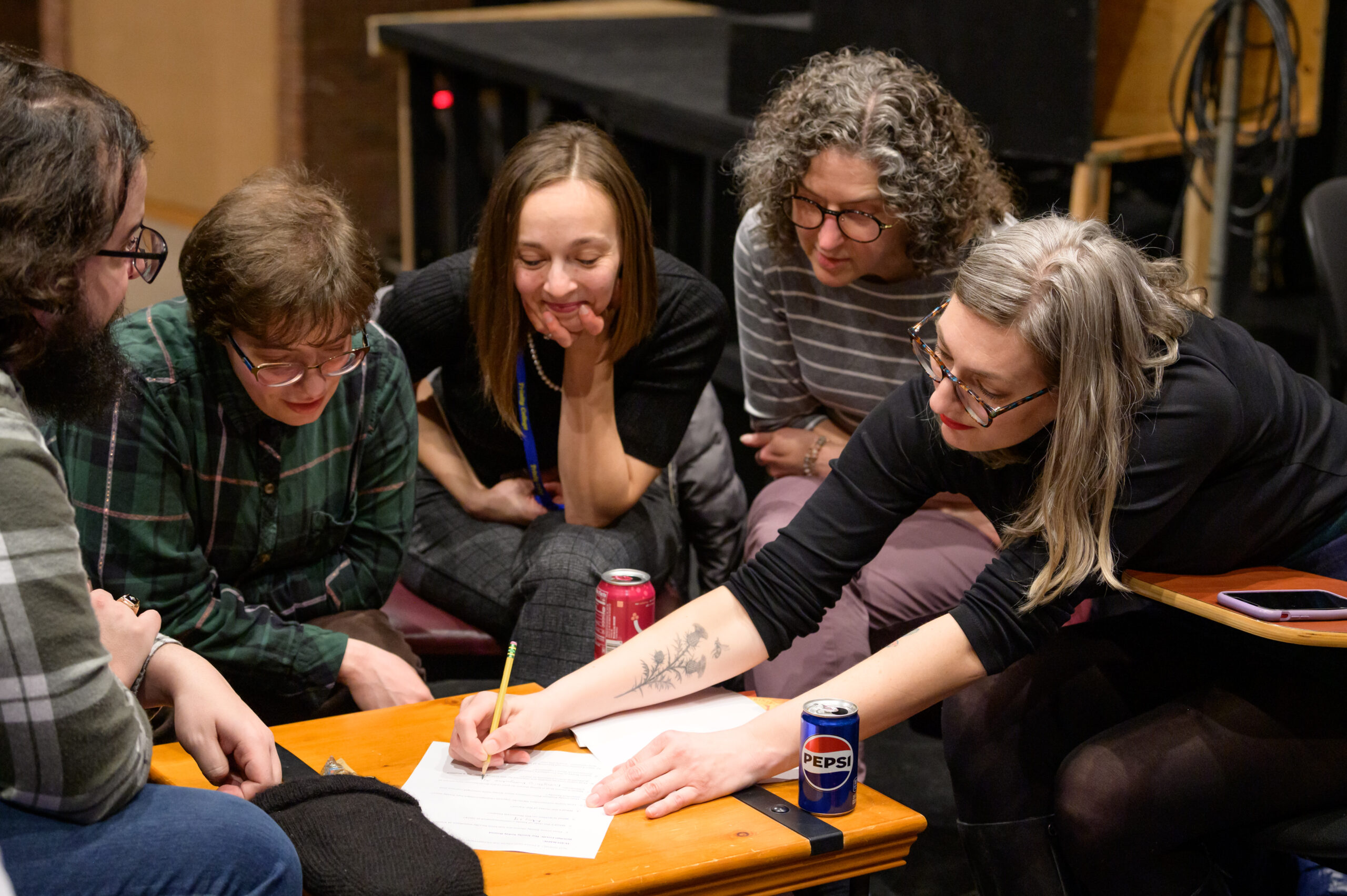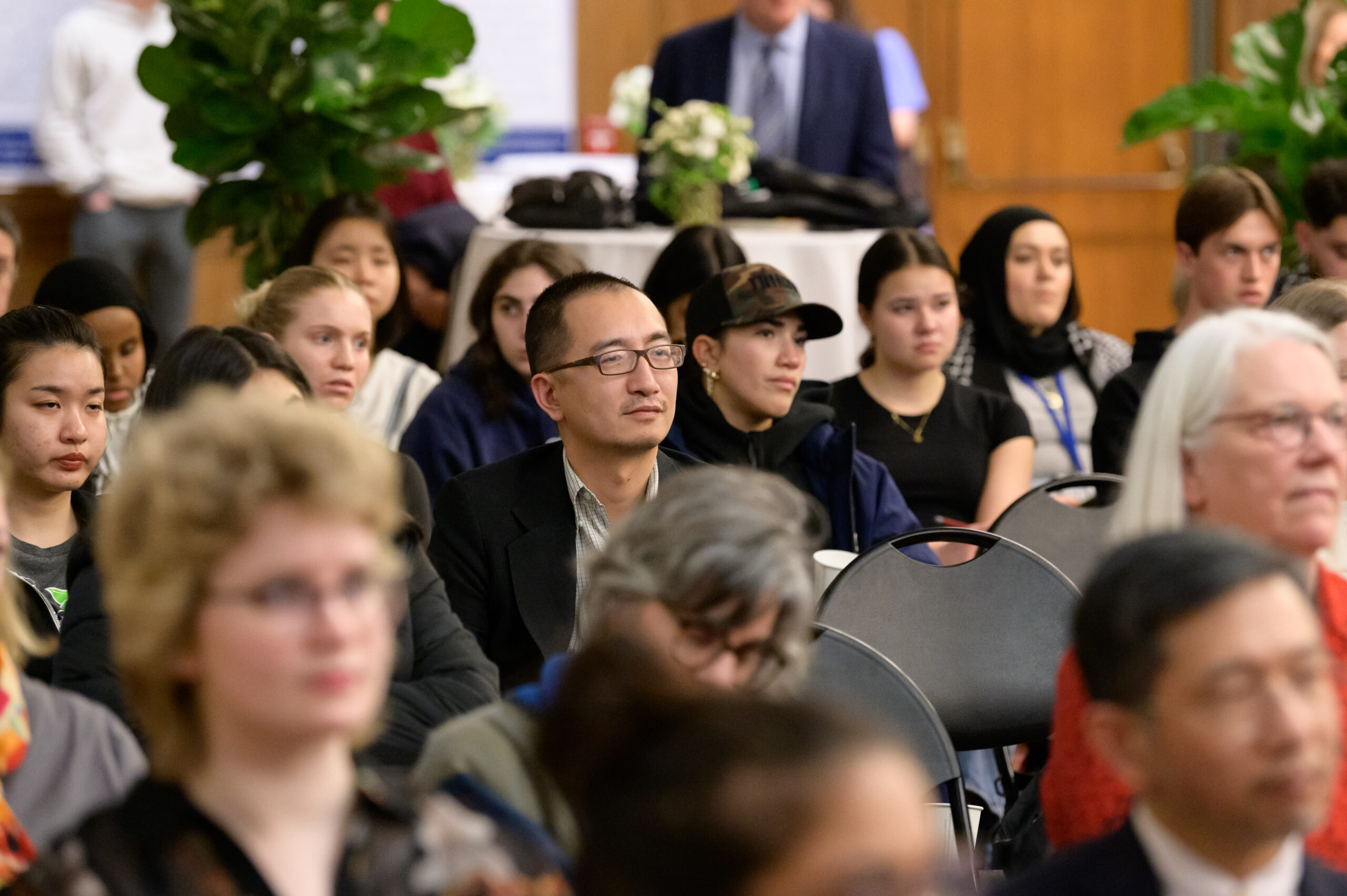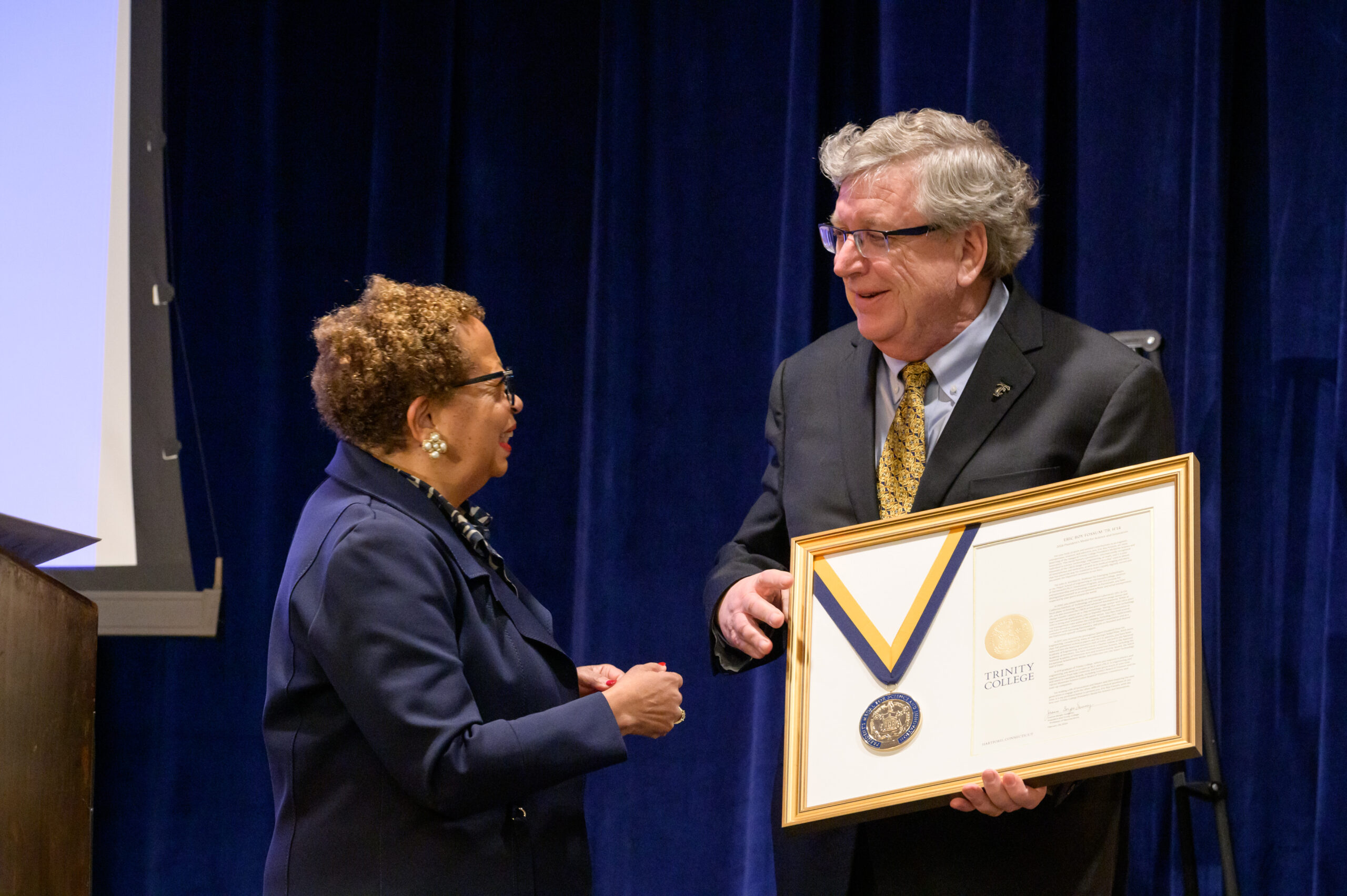For the Trinity College alumnus who developed the “camera on a chip” technology used in almost all smartphones and webcams, this small liberal arts institution was the ideal place to launch a career in the sciences.
“People think of liberal arts, they think of creativity,” said Eric R. Fossum, ’79, H’14. “Engineering is not all about math and computing things—those are the tools—its also about creativity.”
Fossum received Trinity College’s inaugural President’s Medal for Science and Innovation on February 28, 2024, an honor conferred by President Joanne Berger-Sweeney at the end of the daylong Bicentennial Spring Symposium: Reflection and Action.
“For centuries, Trinity has been a place for problem solvers and innovators, answering questions that no one has asked, and creating solutions to problems,” said Berger-Sweeney to the audience assembled in the Washington Room of Mather Hall. Fossum, she noted, “represents the liberal arts ideal of empowering humanity through the sciences.” Watch a short video featuring Fossum here.
The campuswide symposium brought together faculty, staff, students, alumni and community members to discuss topics surrounding how the liberal arts experience at Trinity is defined by the productive interplay between research, teaching, learning, and praxis.
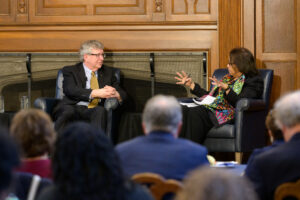
Earlier in the day, Fossum, the John H. Krehbiel Sr. Professor for Emerging Technologies at the Thayer School of Engineering at Dartmouth College, engaged in a conversation with fellow scientist Shirley M. Malcom to discuss his path from a physics and engineering major at Trinity to an innovator whose technology is in the hands of people worldwide.
The President’s Medal for Science and Innovation is the latest recognition for the former trustee, whose work has received such wide-ranging accolades as the prestigious Queen Elizabeth Prize for Engineering—considered by many as engineering’s Nobel Prize—and the National Academy of Television Arts and Sciences Emmy Award for technological contributions.
In a conversation with Malcom that was filled with personal anecdotes, Fossum noted that the Emmy Award derives from Immy, a nickname for image orthicon, a camera tube used in television. The Emmy Award statuette consists of a winged woman, representing art, holding aloft an electron, representing science, which seemed an apt symbol for the liberal arts experience, as well.
Despite his record of accomplishments, Fossum noted that he was not always confident in his work.
As he prepared to attend graduate school at Yale University, Fossum said he felt the stress of wondering whether he would be able to compete with other students, a worry that quickly dissipated. “I found out I could compete,” said Fossum, who earned a master’s and Ph.D. in engineering and applied science at Yale. “Let me assure you that Trinity delivers a world-class education.”
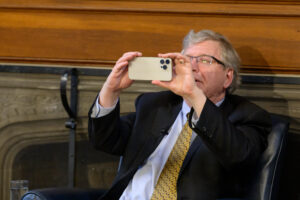 At the end of the conversation with Malcom, herself a senior advisor to the CEO and director of SEA Change at the American Association for the Advancement of Science, Fossum demonstrated his own technology.
At the end of the conversation with Malcom, herself a senior advisor to the CEO and director of SEA Change at the American Association for the Advancement of Science, Fossum demonstrated his own technology.
The devoted alumnus and entrepreneur held up his phone to the audience and snapped a photograph of the moment with his own CMOS image sensor.
Bookended by Keynotes
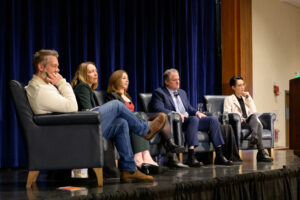
The pair of keynotes that opened and closed the daylong symposium included “Committed to the Future: (Re)-imagining the Liberal Arts in the Age of AI,” and “The Presidential Distinguished Lecuture: Educating The Next Generation of STEM Leaders Through Liberal Arts: How Innovative and Inclusive Thinkers Will Help Us Solve Future Issues.”
For the latter, Freeman Hrabowski III, American educator, mathematician, author, and leading advocate for underrepresented students in higher education, shared his thoughts as someone who was at the helm of a large university for three decades.
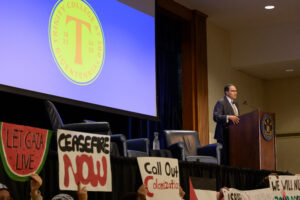
Hrabowski said his experience, which included working with Dr. Martin Luther King in the civil rights movement, has shaped his perspective on the value of higher education and the importance of accessibility for educating the next generation of leaders.
The former University of Maryland, Baltimore County president cautioned that the Bicentennial Spring Symposium was not a time to rest on laurels, but to engage in uncomfortable discussions.
Toward that end, Hrabowski acknowledged the peaceful demonstration taking place in front of the stage by participants seeking an end to the war in Gaza. “I challenge you to speak your truth,” he said.
Hrabowski continued to “challenge” the community with a series of queries. “I challenge you to think about why you do what you do. To think about what questions we are asking today for society, for Trinity, and for ourselves. Who are we and what do we hope to accomplish?”
“The answers to the challenges we face are never easy,” Hrabowski said. “It has everything to do with asking the tough questions.”
Around Campus
Around Campus
